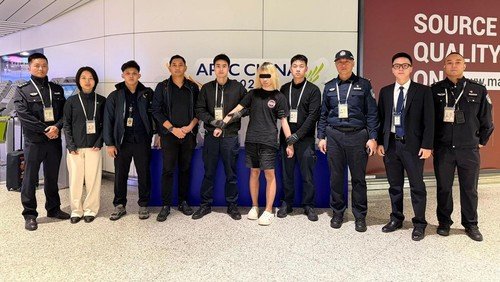
The news has sent ripples through the tech community: the much-anticipated iPhone 16 will not grace the shelves of Indonesian stores. This decision, announced in late October, has left many tech enthusiasts and consumers puzzled.
But why exactly has Apple decided to bypass Southeast Asia’s largest economy? The answer lies in a complex web of regulatory challenges and unmet investment commitments that have put a temporary halt to Apple’s plans in Indonesia.
Key Facts About the Ban
Indonesia’s Ministry of Industry confirmed that the sale of the iPhone 16 is prohibited due to Apple’s failure to meet the required local investment and content standards. The regulations mandate a 40% local content requirement, which Apple has not yet fulfilled. Additionally, Apple has fallen short on its investment pledge by approximately $14 million, which has further complicated the issuance of the necessary certifications for the iPhone 16.
- Apple’s investment commitment: 1.71 trillion rupiah
- Actual investment made: 1.48 trillion rupiah
- Shortfall: 230 billion rupiah
Government Statements and Reactions
Minister of Industry Agus Gumiwang Kartasasmita has been vocal about the need for Apple to meet its commitments. In a statement, he emphasized that any iPhone 16 found operating within Indonesia would be considered illegal, urging consumers to report such instances. The government remains firm on its stance, insisting that the tech giant must comply with local regulations to proceed with sales in the country.
Despite the ban, the ministry has allowed for the personal use of iPhone 16 models brought into the country as personal baggage, provided they are not sold or traded. This measure is meant to accommodate tourists and expatriates, though it comes with its own set of regulatory hurdles.
Apple’s Investment Commitments and Regulatory Challenges
Apple’s journey in Indonesia has been fraught with regulatory hurdles that require careful navigation. The company’s ambitious plans to establish a stronger foothold in the region hinge on meeting these stringent requirements. However, the road to compliance has been anything but smooth, with investment commitments falling short of expectations.
Investment Pledge Breakdown
Apple’s initial pledge to invest 1.71 trillion rupiah aimed to bolster local operations and infrastructure, but only 1.48 trillion rupiah has been realized. This shortfall has been a significant barrier to obtaining the necessary TKDN (Domestic Component Level) certification. Apple’s strategy included establishing Apple Academies for research and development, yet progress has been slower than anticipated.
TKDN Certification Requirements
The TKDN certification is pivotal for any foreign electronic product to be sold in Indonesia. It requires a minimum of 40% local content, encompassing materials, labor, and facilities. Apple has opted for an innovation development scheme to meet these demands, but the pace of investment has not matched regulatory expectations. This has led to a standstill in certification renewal, effectively barring the iPhone 16 from the market.
Impact on Consumers and the Market
The absence of the iPhone 16 from the Indonesian market is more than just a missed opportunity for Apple; it represents a significant shift in consumer dynamics and market competition. With Apple products being a status symbol among tech-savvy Indonesians, the ban leaves a noticeable void in consumer choice.
Effects on Current iPhone Users
Current iPhone users in Indonesia may find themselves at a crossroads. While older models remain available, the allure of the latest technology is undeniable. The inability to officially purchase or use the iPhone 16 in Indonesia may lead to increased reliance on imports or alternative means of acquisition, albeit with potential legal risks.
Furthermore, the ban impacts software updates and support for devices not officially recognized in the country, potentially leaving users with outdated technology and security vulnerabilities.
Comparative Analysis with Other Markets
Apple’s situation in Indonesia is not unique, as the company has faced similar challenges in other emerging markets. The comparison with other Southeast Asian countries provides insight into how Apple might adapt its strategies to overcome these obstacles.
Apple’s Strategy in Southeast Asia
In countries like Vietnam and Thailand, Apple has managed to comply with local regulations by adapting its supply chain and investing in local partnerships. These strategies could serve as a blueprint for overcoming the hurdles in Indonesia, provided Apple is willing to make the necessary adjustments and investments.
Competitors’ Position in Indonesia
Samsung and Xiaomi’s success in Indonesia stems from their proactive approach to meeting local content requirements. By establishing factories and sourcing materials locally, these companies have secured a firm foothold in the market. Their ability to adapt swiftly to regulatory changes offers a lesson in agility and foresight that Apple may need to emulate.
Future Prospects for Apple in Indonesia
Despite the current challenges, Apple’s future in Indonesia is not entirely bleak. The company’s global influence and innovative capabilities provide a foundation for potential recovery, should it choose to address the existing regulatory and investment gaps.
Possible Steps for Compliance
To re-enter the Indonesian market, Apple must fulfill its investment commitments and secure the necessary TKDN certification. This may involve accelerating the establishment of local R&D centers and exploring partnerships with Indonesian firms to boost local content.
Additionally, Apple could consider enhancing its supply chain to include more local components, aligning its operations with Indonesia’s economic goals and regulations.
Long-term Market Implications
The long-term implications for Apple in Indonesia hinge on its ability to adapt to the evolving regulatory landscape. Successfully navigating these challenges could open doors to a burgeoning market with a young and tech-savvy population eager for innovation.
However, failure to do so may result in a continued loss of market share to competitors who have already established a strong presence. Apple’s ability to balance global strategies with local compliance will be crucial in determining its success in this dynamic market.
Expert Opinions and Industry Insights
Industry analysts have weighed in on Apple’s predicament, offering a range of perspectives on the potential outcomes and strategic adjustments necessary for success in Indonesia.
Quotes from Industry Analysts
Renowned analyst Runar Bjørhovde remarked, “Apple’s challenge in Indonesia underscores the importance of aligning corporate strategies with local regulations. The company’s ability to adapt will be key to its success in emerging markets.” This sentiment reflects the broader industry view that compliance and investment are integral to capturing market opportunities.
Another expert noted, “The ban is a setback, but it also presents an opportunity for Apple to rethink its approach and strengthen its ties with local stakeholders.” Such insights highlight the potential for growth and innovation if Apple can navigate the regulatory maze.
Consumer Sentiment and Reactions
Indonesian consumers have expressed mixed reactions to the ban. While some support the government’s stance on local investment, others lament the lack of access to the latest technology. Social media platforms have become a battleground for these differing opinions, with discussions centering around the balance between regulation and consumer choice.
Ultimately, the outcome of this situation will depend on Apple’s response and its willingness to engage with the complexities of the Indonesian market. As the tech giant charts its path forward, the eyes of the world will be watching to see how it navigates this pivotal moment.










